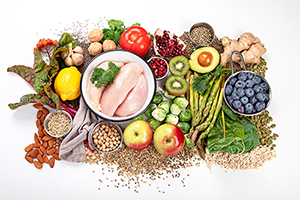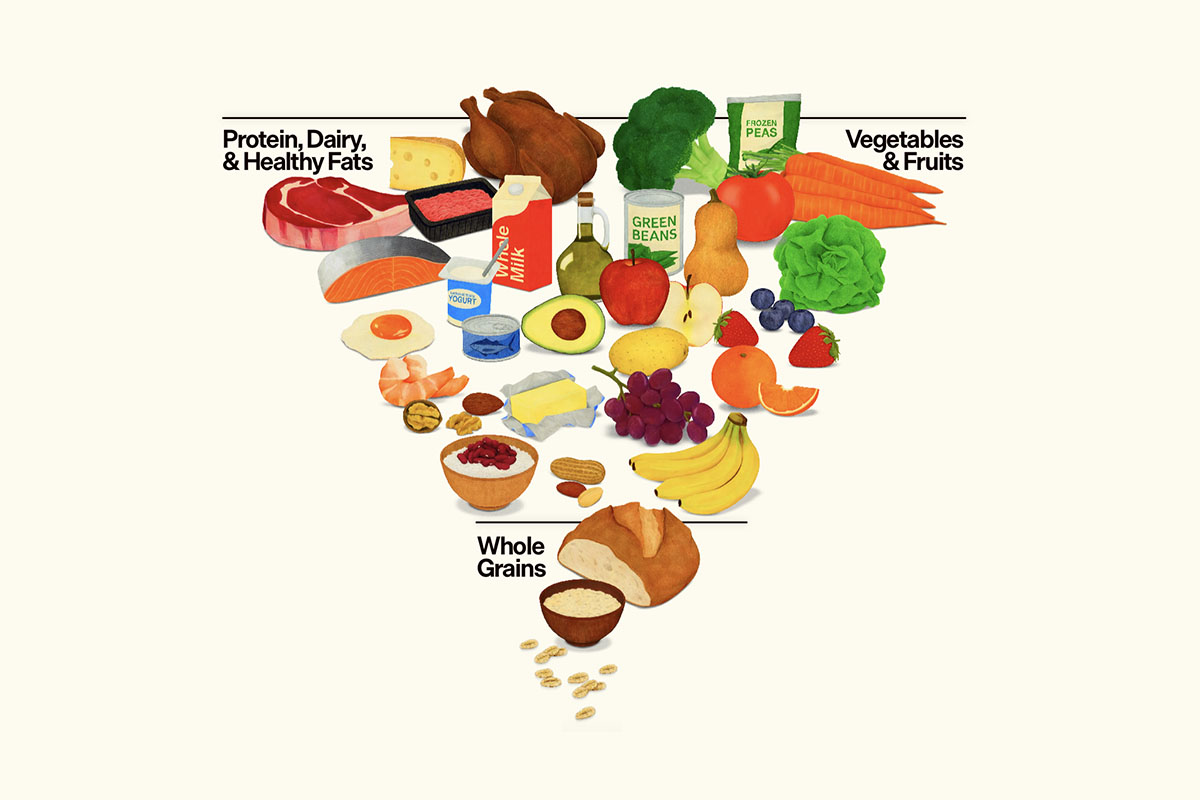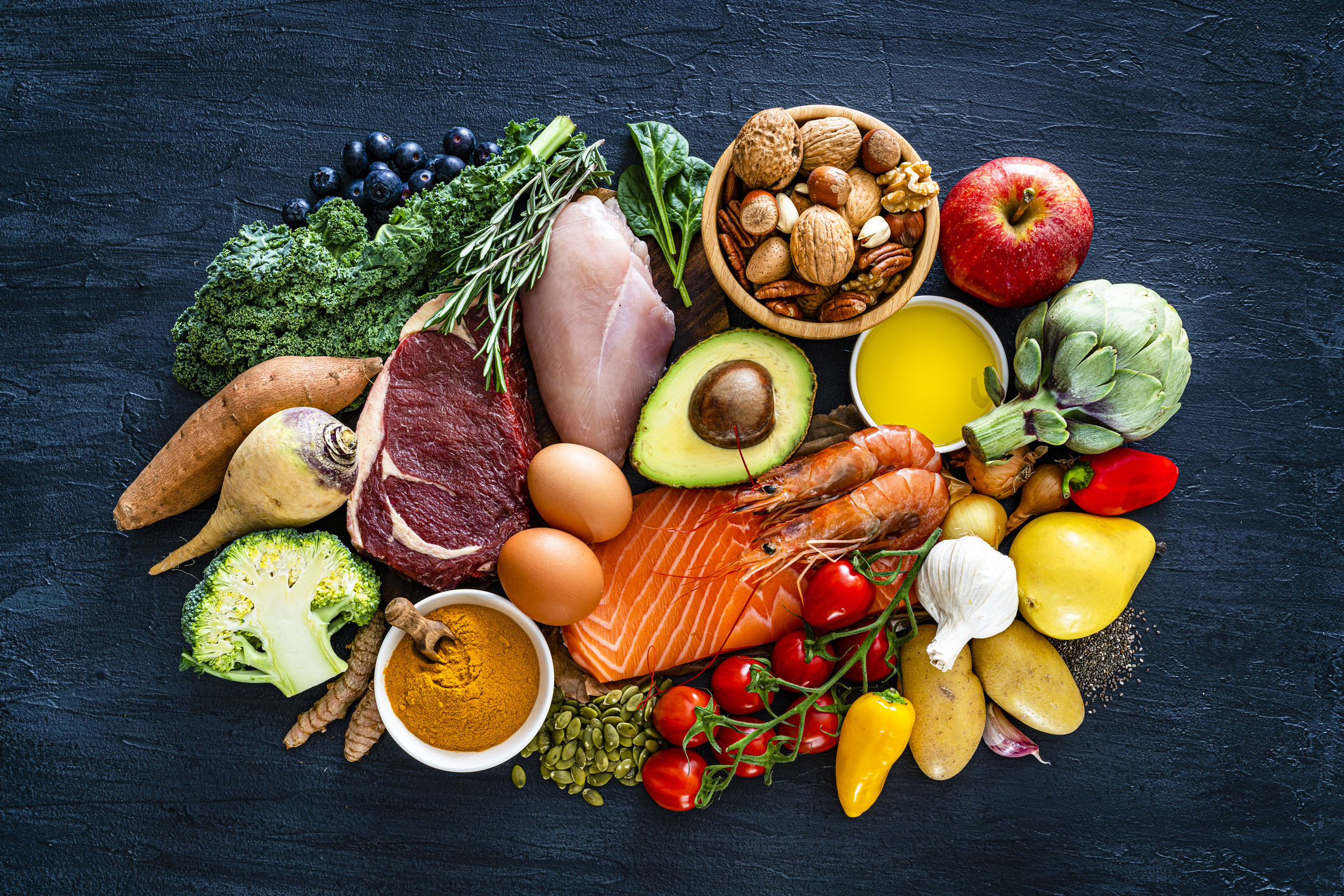First the good news: According to a Harvard study released this month, a variety of healthy diet patterns dramatically reduced the risk of dying from a multitude of diseases. The study was huge—comprising over 75,000 women and 44,000 men followed for 35 years as part of the Framingham Study.
Of course, there were robust double-digit reductions in the risk of dying from cardiovascular disorders. There was even a 7-14% decrease in cancer deaths. The surprise was there was up to a 46% lower risk of respiratory disease-related death, a testament to the anti-inflammatory benefits of a healthy diet. Puzzlingly, there was no significant protection against stroke deaths. But there was even a modest reduction in deaths due to neurodegenerative disease—the bulk of which are attributed to Alzheimer’s.
That’s a “DUH”. My entire professional career has been predicated on the notion that diet helps you delay your reckoning with the Grim Reaper, and now here’s vindication. It had to be “proven”, 2500 years after Hippocrates declared: “If we could give every individual the right amount of nourishment and exercise, not too little and not too much, we would have found the safest way to health.”
But here’s the disappointment: The researchers studied four diet patterns—The Mediterranean Diet, the vegetarian diet, and a couple of versions of the FDA’s Healthy Eating Index. But all were variations on the theme of low saturated fat intake comporting with continued stigmatization of full-fat dairy and red meat. The authors conclude:
“These healthy dietary patterns typically include high amounts of plant foods such as fruits, vegetables, whole grains, nuts, and legumes, and lower amounts of refined grains, added sugars, sodium, and red and processed meats.”
This notwithstanding the latest studies that explode the myth that a healthy diet should exclude meat, dairy and eggs, especially when teamed with plentiful minimally-processed plant foods. And none of the diets studied were low-carb; while de-emphasizing refined carbohydrates, all four included ample potions of grains and starchy vegetables.
By contrast, a study just released in the American Journal of Clinical Nutrition explored what happens when a healthy weight loss diet is augmented with significant portions of unprocessed red meat. It didn’t get a lot of attention because its results run counter to the globalist narrative that we all need to drastically curb our intake of food from livestock.
In this study, individuals were placed on a low-calorie diet which induced significant weight loss. Then, during a maintenance phase, they were assigned to either of two diets, one with, and one without generous portions of unprocessed red meat. Both groups ate plenty of healthy low-starch vegetables. During the maintenance phase, the subjects were not calorie-restricted but consumed an ad libitum diet—they ate as much as they wanted.
The result—both groups did fine, didn’t regain their lost weight, and didn’t evince adverse impacts on their lipid profiles, blood pressure or blood sugar. The researchers summarize:
“Healthy diets consumed ad libitum that contain a little or a lot of unprocessed beef have similar effects on body weight, energy metabolism, and cardiovascular risk factors during the first 3 mo after clinically significant rapid weight loss . . . [even eating meat far above the population average] has no adverse effects on body weight and metabolic function when compared with a diet that contains much smaller amounts of beef.”
In another crucial study (“Saturated fat from dairy sources is associated with lower cardiometabolic risk in the Framingham Offspring Study”) it was found that, not only was full-fat dairy not harmful, it was beneficial from the standpoint of cardiovascular risk!
The same with eggs. A recent study found that moderate consumers of eggs (1 or 2 daily) had higher levels of 14 heart-protective metabolites than non-egg consumers.
Findings like these have prompted calls for a serious about-face in our attitude towards dietary saturated fat. In a 2020 review entitled “Saturated Fats and Health: A Reassessment and Proposal for Food-Based Recommendations” researchers noted that while U.S. Dietary Guidelines recommend the restriction of SFA intake to <10% of calories to reduce CVD . . .
- “Different SFAs have different biologic effects, which are further modified by the food matrix and the carbohydrate content of the diet.”
- “Several foods relatively rich in SFAs, such as whole-fat dairy, dark chocolate, and unprocessed meat, are not associated with increased CVD or diabetes risk.”
- “There is no robust evidence that current population-wide arbitrary upper limits on saturated fat consumption in the United States will prevent CVD or reduce mortality.”
They conclude:
“There is, therefore, a large body of information that raises questions regarding conventional beliefs about SFAs and clinical outcomes. Taken together, the evidence from both cohort studies and randomized trials does not support the assertion that further restriction of dietary saturated fat will reduce clinical events.”
That was written in 2020. Nevertheless, Tufts University just plunged ahead with ratings of food “healthiness” based largely on their content of saturated fatty acids:
“The Nutrition Advisory Committee at the Friedman School created a Healthy Food Guide “that maps out choices for consumers and helps alleviate confusion about what ‘eating healthy’ really means in practice.”
Their claim is that adherence to the Healthy Food Guide will forestall disease and death:
“A higher Food Compass diet score was associated with lower blood pressure, blood sugar, blood cholesterol, body mass index, and hemoglobin A1c levels; and lower prevalence of metabolic syndrome and cancer. A higher Food Compass diet score was also associated with lower risk of mortality: for each 10-point increase, there was a 7 percent lower risk of death from all causes.”
Maybe, but by their admission, only 35% of Americans score high on their Healthy Food Guide rating system. By eliminating outright junk, as the Guide advocates, Americans would eat better. But some of their “Food Compass” ratings verge on the ridiculous, given what we now know about nutrition science.
For example, on scale of 1 (to be avoided) to 100 (most healthy), soy milk earns a rating of 71 (consume more) vs. beefsteak with a 33 (discouraged); Skim milk rates a 67 vs. whole milk 49; Potato chips (low salt) are a 59 with fruit sorbet 32. Breakfast cereals enjoy high ratings with Cheerios 95, Kellogg’s Raisin Bran 72, and Total 84. Fried bananas (64) are considered healthier than feta cheese (36); a serving of Honey Nut Cheerios (76) outperforms an egg fried in butter (29).
Crucially, while rating refined carbohydrates as less desirable, the NIH-funded Food Compass takes little account of current scientific consensus that curbing overall carbs might stem the global tide of obesity. For example, Boost Plus® Nutrition Drink (with 45 grams of carbohydrates and 24 grams—nearly 5 teaspoons—of added sugar per serving) earns a score of 64, while lean pork spare ribs (zero carbs) rate a 40.
Call me a conspiracy theorist, but could this have something to do with the fact that there’s been corporate capture of the nutrition profession in the USA? A recent investigative report highlights the complex financial interrelationships between food conglomerates and academe:
“The documents reveal a symbiotic relationship between the AND [Academy of Nutrition and Dietetics], its Foundation, and corporations. Corporations assist the AND and ANDF with financial contributions. AND acts as a pro-industry voice in some policy venues, and with public positions that clash with AND’s mission to improve health globally.”
Makes you wonder why, with so much known, progress in nutritional science is so agonizingly slow—as our fellow citizens’ waistlines continue to expand.








